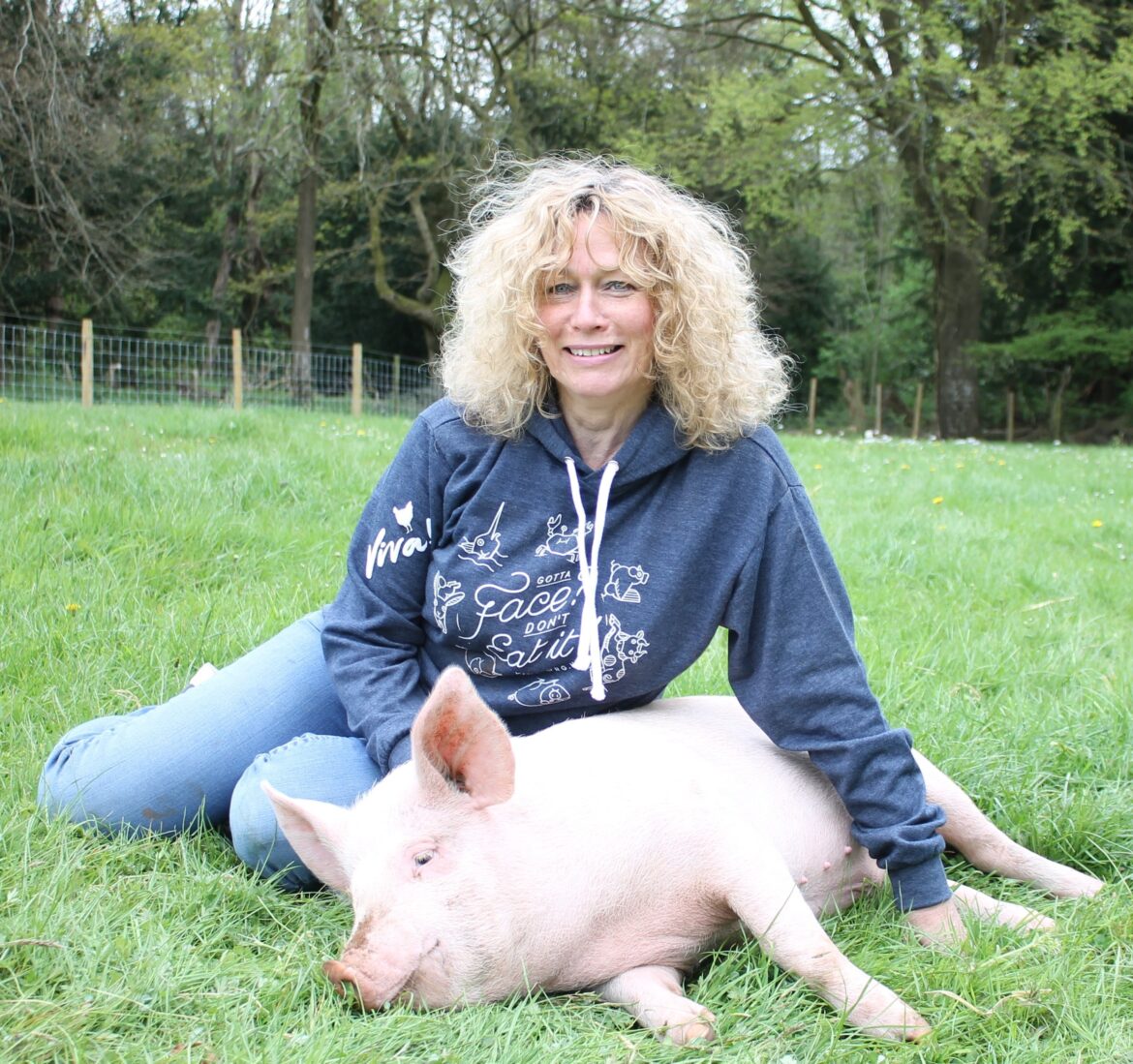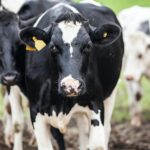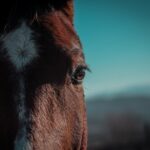Juliet Gellatley, founder & director of Viva!, discusses her passion for veganism, the production of the new documentary HOGWOOD: A Modern Horror Story and how Christians can play an active role in animal advocacy.
Tell us about yourself and when you became concerned with animal issues.
I tried to rescue animals as a little girl and my mum enjoyed reminding me of when a stray cat I secretly adopted, gave birth to three kittens in my wardrobe. My mum says I always fought for the underdog. I can’t bear unfairness – and it’s a remarkably unfair world! I think I was a born campaigner, with an inherent optimism that the world can be changed.
I was a passionate teenager and when I found out about vivisection I felt desperate. One of the first films I watched was Britches, about a little monkey whose eye lids were crudely stitched up in a maternal deprivation experiment. I found it devastating and became outspoken and probably a pain in the backside! I’d do all I could to make people watch that film and others; bribery, corruption, anything! I used to sticker meat at home “WARNING: this product contains a dead animal” and moved on to supermarkets. I found it puzzling and upsetting that others simply didn’t feel the same depth of emotion about animal cruelty.
I did a degree in zoology, and switched to zoology with psychology to avoid dissection and vivisection. I was absolutely focused – I had to save animals for my ‘career’. In terms of sheer scale, by far the most animals are exploited and killed globally for meat, fish, eggs and dairy. The best way to save animals was to persuade, cajole, nudge and help people go vegan and move towards that goal.
Juliet, why did you go vegetarian/vegan?
I’ve been vegan about 30 years but went vegetarian first when I was a teenager. It was because of a look.
A student friend was working on an agricultural project and needed to visit a model farm. There were no animals to be seen, only a collection of ugly, windowless, industrial buildings which could just as easily have been do-it-yourself stores or engineering workshops. We started in the pig house.
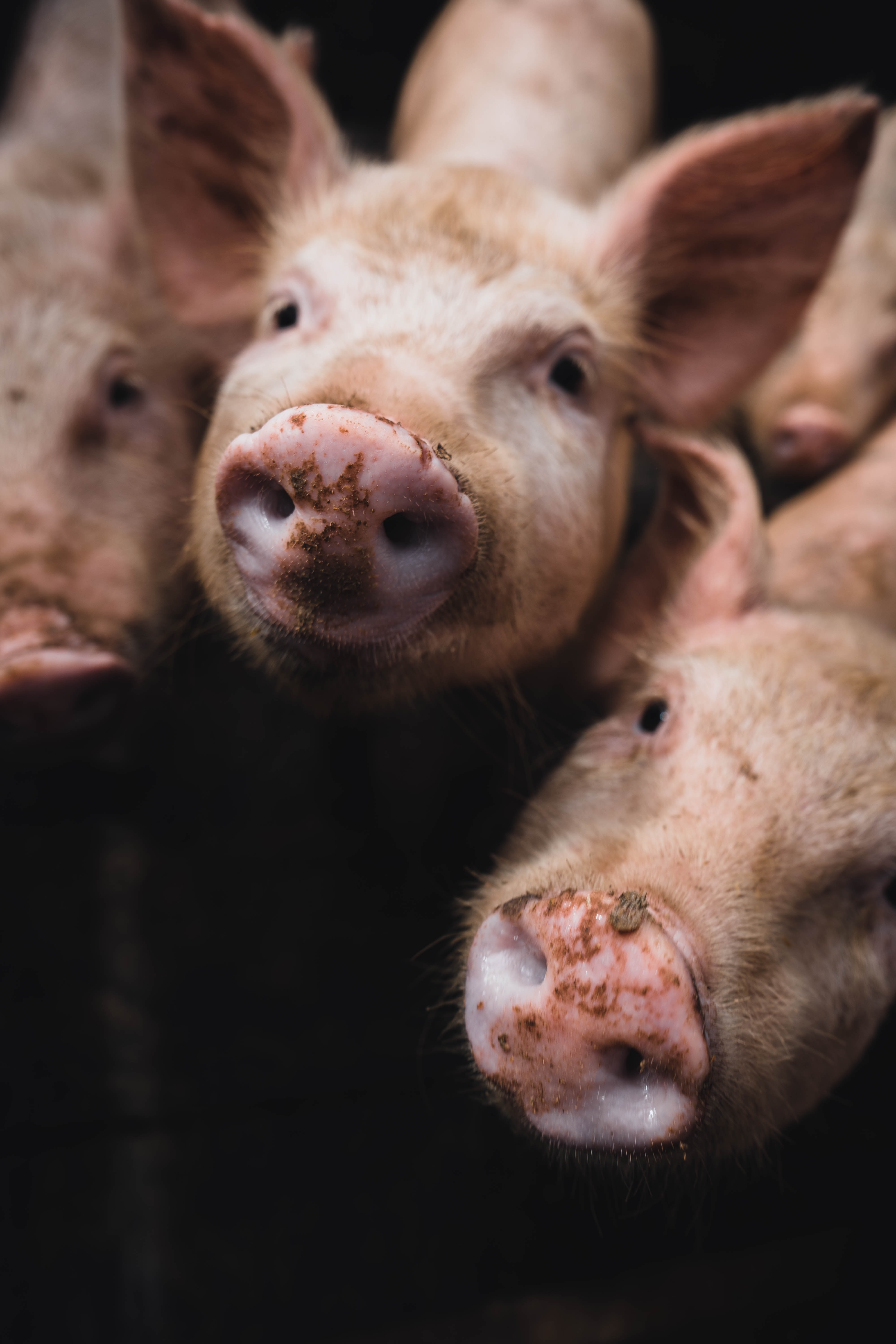 These pigs, I was informed, were the breeding stock, the pregnant sows who would give birth to two and a half litters every year. Ahead of each pig was nothing but iron bars and beneath their feet was slatted metal. Around their middle was a broad collar with an attached shackle, securing them to the ground. With this restraint the poor pigs could take little more than half a pace forward and half a pace back.
These pigs, I was informed, were the breeding stock, the pregnant sows who would give birth to two and a half litters every year. Ahead of each pig was nothing but iron bars and beneath their feet was slatted metal. Around their middle was a broad collar with an attached shackle, securing them to the ground. With this restraint the poor pigs could take little more than half a pace forward and half a pace back.
At the farm I visited, the sad creatures had given up the fruitless struggles of resistance. They had no option. The effect of their barren and sterile existence was obvious to see. Many of them exhibited a syndrome known as ‘stereotypic behaviour’, moving their heads backwards and forwards in an exact and constantly repeated motion, gnawing on their bars in a particular and regular way with the precision of a metronome.
As I stood there and watched the sows in their endless boredom, I could appreciate what a superb example it presented of accountancy to maximise profit and reduce staffing. In the planning, design and construction of this model plant every question had been asked and answered except one: what about the animals?
For creatures with such a strong sense of community, active and highly intelligent, the decision to imprison them in solitary and idle confinement denies them even a semblance of their natural existence. Such a policy reflects our greed and lack of compassion. Pigs have become a product, manipulated, selectively bred and slaughtered at six months old.
The final act in my disturbing drama came at the end of the rows of sow-stalls where a few separate, only slightly larger pens were set aside from the rest. In each one was a huge boar. The one nearest to me stood motionless, his huge head hanging low towards the barren floor. As I came level with him he raised his head and dragged himself slowly towards me on lame legs. With deliberation he looked straight at me, staring directly into my eyes.
It seemed to me that I saw in those sad, penetrating eyes a plea, a question to which I had no answer: ‘Why are you doing this to me?’ I cried silent tears, and I repeated: ‘I’m sorry, I’m so sorry.’ At that moment, I went vegetarian.
Why did you go later go vegan?
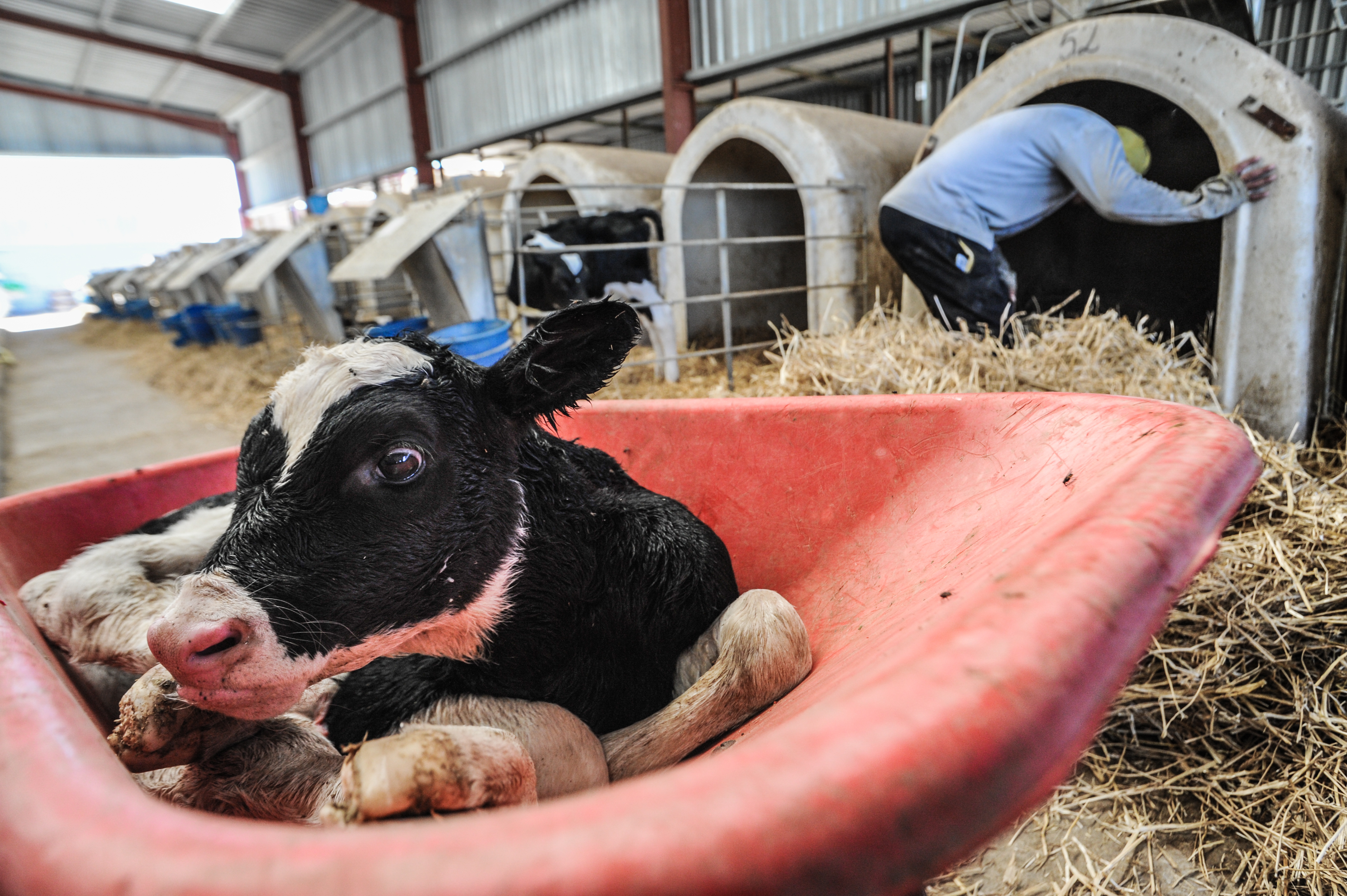
Jo-Anne McArthur
We were reducing the amount of dairy in the house because I was questioning what was happening to dairy cows and their calves. My weakness was milk chocolate and I was reducing the amount I scoffed.
We lived in the countryside and a cow gave birth to twins in the field by my house. One was a still birth and the other was a male calf. He was separated from his mother at a day old. As the farmer scooped up the baby and carried him up the road, I ran after him asking where the calf was heading. He told me that the calf would be exported for veal. I went inside my house and poured the milk down the sink. I was vegan.
Tell us about HOGWOOD: A Modern Horror Story and what inspired you to produce it.
Since 2017, Viva! have recorded a catalogue of cruelty at Hogwood pig farm in Warwickshire, including extreme overcrowding; routine mutilations; cruel farrowing crates where mother pigs and their babies are in metal contraptions; sick and dying pigs abandoned in gangways; the dead left to rot amongst the living; painful lacerations from brutal assaults and live cannibalism.
We discovered that this mega-farm supplied the nation’s largest retailer, Tesco and was Red Tractor approved. Despite Tesco’s attempts to reassure its customers that they take animal welfare ‘extremely seriously’ and that they expect producers to meet ‘stringent, industry-leading requirements’, the pain and suffering continued. They would not drop Hogwood and stated that they would work with the farm to improve conditions.
Despite the farm having become like Fort Knox, we went back in 2018 to test these claims. We were confronted with scenes of abject cruelty. When we found a sow slumped in a narrow passage as three pigs, their snouts smeared with blood, took turns to gnaw at her hind legs, I stopped the investigation to call the police and a vet.
Again, Tesco and Red Tractor defended the farm—as did the government.
Determined to never give up on the Hogwood pigs, we returned in 2019, this time with hidden cameras. We released shocking footage of pigs screeching in terror as farm workers kicked them, slammed gates on them and hit them with metal rods.
Embarrassed by our third expose, Tesco dropped Hogwood, followed by Red Tractor.
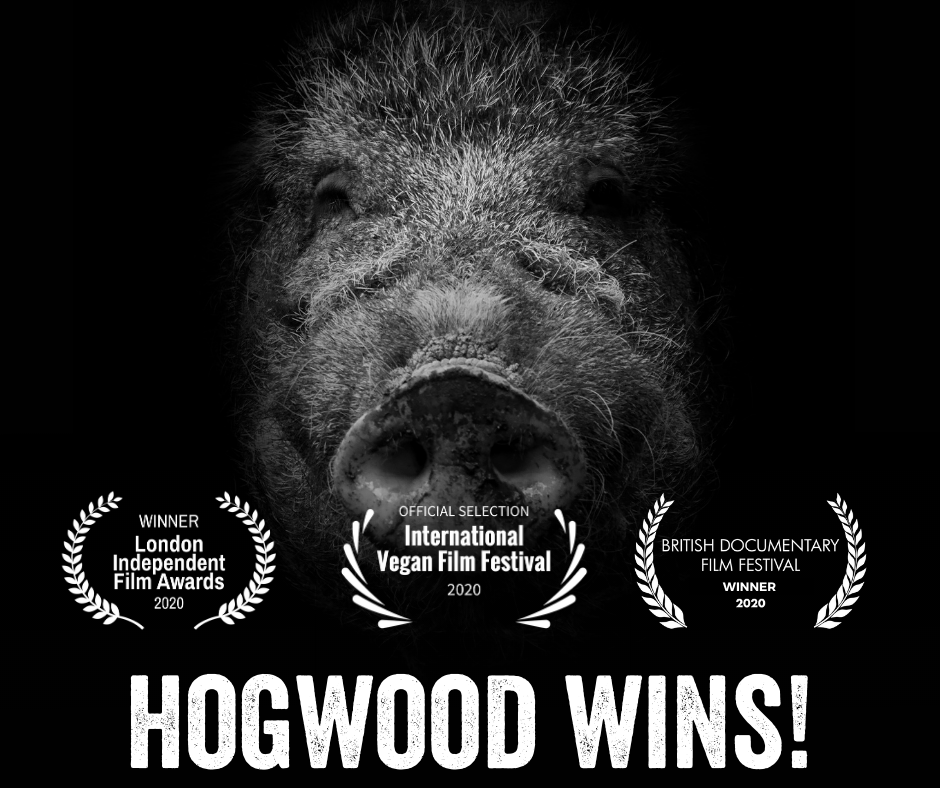 I decided to make a documentary because the British public didn’t know how shockingly low welfare and hygiene standards are in British factory farms, and how – even when you expose severe cruelty – retailers, farming bodies, the government and Red Tractor close ranks until they are forced to act. Worse still, the law is so weak that farms are very rarely prosecuted.
I decided to make a documentary because the British public didn’t know how shockingly low welfare and hygiene standards are in British factory farms, and how – even when you expose severe cruelty – retailers, farming bodies, the government and Red Tractor close ranks until they are forced to act. Worse still, the law is so weak that farms are very rarely prosecuted.
We made HOGWOOD: a modern horror story to explore the reasons behind factory farming and expose the negligence and inaction by government bodies and corporations alike. It highlights how meat pollutes our planet and puts us at risk from future pandemics and disease outbreak. It follows the brave fight to expose the truth and change the world.
The presenter is Jerome Flynn, best known for his role as Bronn in Game of Thrones. His narrative is intertwined with undercover footage and interviews with investigators and activists representing Viva!. The film goes onto feature interviews with a livestock vet speaking out about her horrific on-the-job experiences for the first time. It concludes with expert comment from public health expert, Dr Josh Cullimore and Oxford University researcher Joseph Poore.
How have people reacted to the release of Hogwood?
Overwhelmingly supportive! I was delighted when Formula One champion, Lewis Hamilton shared it on his Instagram Stories urging everyone to watch it!
I think actor Peter Egan summed up people’s views when he said: “I truly believe HOGWOOD can change the hearts and minds of all who watch it. This powerful documentary could put an end to the damaging animal industries which threaten our very existence. HOGWOOD must be shared far and wide.”
In what ways can Christians play an active role in standing up to the animal suffering you helped expose?
People of faith can all help end animal cruelty by taking responsibility as both individuals and community members. Viva! has investigated most of the major players in the animal agricultural industry and the same neglect and abuse rear their ugly heads each time. As HOGWOOD the movie shows, we can’t rely on government or retailers to protect animals – it is up to us. Fortunately, the power is in our hands as we hold the purse strings. By choosing vegan we make a massive difference. The change is tangible. All national restaurant chains now offer decent vegan options – and many like Wagamama, Yo Sushi, Las Iguanas and Pizza Express have entire vegan menus. Supermarkets are competing with each other to provide the best vegan options. Churches, theological colleges, Christian charities and other faith groups can follow suit in choosing to serve delicious vegan meals and refreshments at their gatherings. By buying kind, we are making the choice to end factory farming – before it ends us!
HOGWOOD: A Modern Horror Story
Juliet Gellatley (BSc Zoology & Psychology; nutritional therapist, DIP CNM; Dip DM) is the founder and director of Viva! – a campaigning charity based in Bristol, UK.


